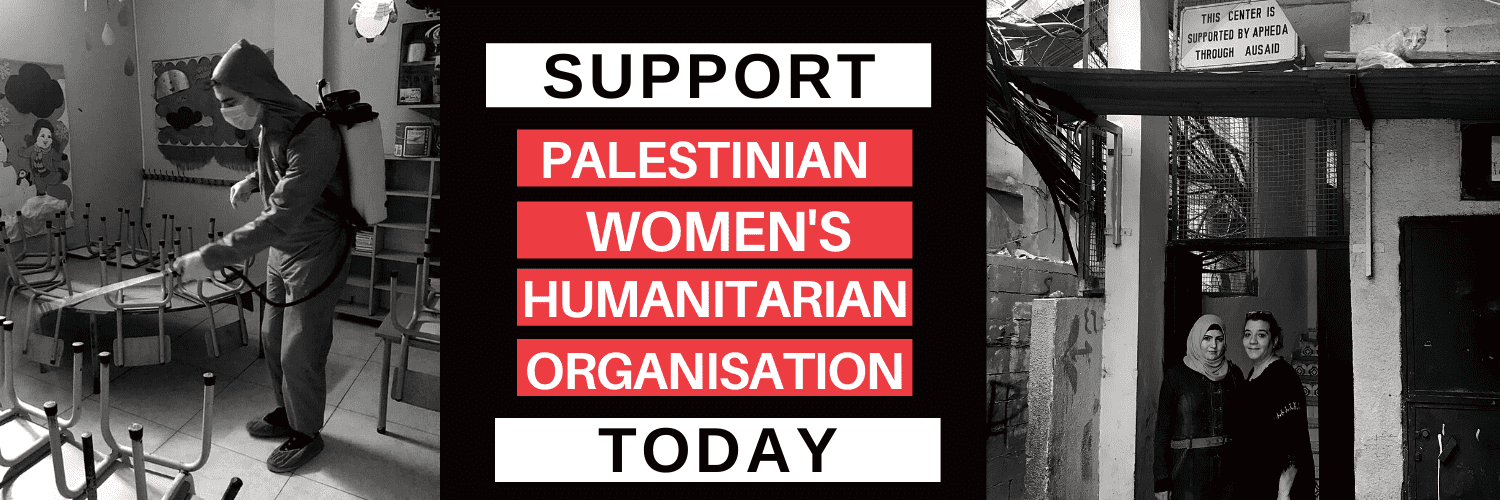
Support the Palestinian Women’s Health Organisation
On Tuesday 4 August 2020, a devastating explosion tore through the heart of Beirut. With the death toll rising to more than 130, an estimated 5,000 people wounded, and hundreds of thousands made homeless, the magnitude of the blast is catastrophic.
For many years, Lebanon had already been rocked by political and economic crisis. The COVID-19 pandemic has exacerbated the situation and the explosion in Beirut has delivered yet another blow. The explosion occurred at the port which is the primary entry point for supplies to the country. Concern is growing over food shortages as the port area also stores around 85 per cent of the country’s grain reserves.
One in four people in Lebanon is a refugee
Lebanon is home to some of the world’s most vulnerable communities. One in four people is a refugee making Lebanon the country with the largest number of refugees per capita in the world. Refugees live in refugee camps in Beirut and were already facing a potentially disastrous situation with the outbreak of COVID-19. The impact of the explosion will further exacerbate the situation for refugees in Beirut as food supplies are disrupted and the cost of food and water increases.
Supporting Palestinian Refugees in the aftermath of the Beirut Explosion
Union Aid Abroad – APHEDA has supported the Palestinian Women’s Humanitarian Organisation (PWHO) on projects in Palestinian camps in Beirut for many years. All of PWHO’s staff and their families are safe. But the impact of the explosion is flowing on to them. With disrupted food and water supplies, a food crisis is unfolding and both refugees and the people of Lebanon will become dependent on aid supplies. Refugees in the camp are worried and are fearful of the risk of COVID-19. It is hard to maintain physical distancing in the camps as they are crowded and the buildings are very close together.
Since the beginning of the global COVID-19 pandemic, PWHO has been working hard to prevent the spread of Coronavirus in vulnerable communities and to protect those most at risk of infection. This situation in the Palestinian refugee camps has now been exacerbated by the by the explosion in Beirut.
The Palestinian camps in Beirut now also face food and water shortages due to the disruption in transportation and supply. This adds further stress as the situation is even more unpredictable and precarious. With food prices rising by the minute, PWHO are assisting with the basic survival of the camp communities who can no longer afford food and water.
Donations to Union Aid Abroad- APHEDA will assist our established partner organisation, the Palestinian Women’s Humanitarian Organisation, to respond to the immediate needs of women, children and vulnerable families in the Palestinian camps located in southern Beirut. This support includes immediate additional food and nourishment to prevent severe malnutrition especially of children, and sanitation packs for families to prevent further spread of COVID19.
About PWHO
In 1993 APHEDA helped form the Palestinian Women’s Humanitarian Organisation (PWHO). Today this movement supports Palestinian and Syrian refugee women living in Lebanon to find sustainable work while supporting the needs of the camp communities from a woman’s perspective.
Privacy
Union Aid Abroad-APHEDA is committed to protecting your privacy. View privacy policy.
Tax Deductibility
Donations of $2 and over to APHEDA’ s Overseas Project Fund Account are tax deductible. An official receipt for taxation purposes will be sent to the email you provide in this donation form.
Need Assistance?
If you require assistance with your donation or have any questions, please contact us at +61 2 9264 9343 or email office[at]apheda.org.au.
MORE INFORMATION ON THE SITUATION FACING REFUGEES IN BEIRUT
- Read the COVID-19 Crisis Update from Dr. Olfat Mahmoud (June 2020)
- Read the COVID-19 and Beirut Explosion Update from Dr. Oflat Mahmoud (6 August 2020)
- Read Beirut Explosion: A Reflection by Dr. Olfat Mahmoud (8 August 2020)